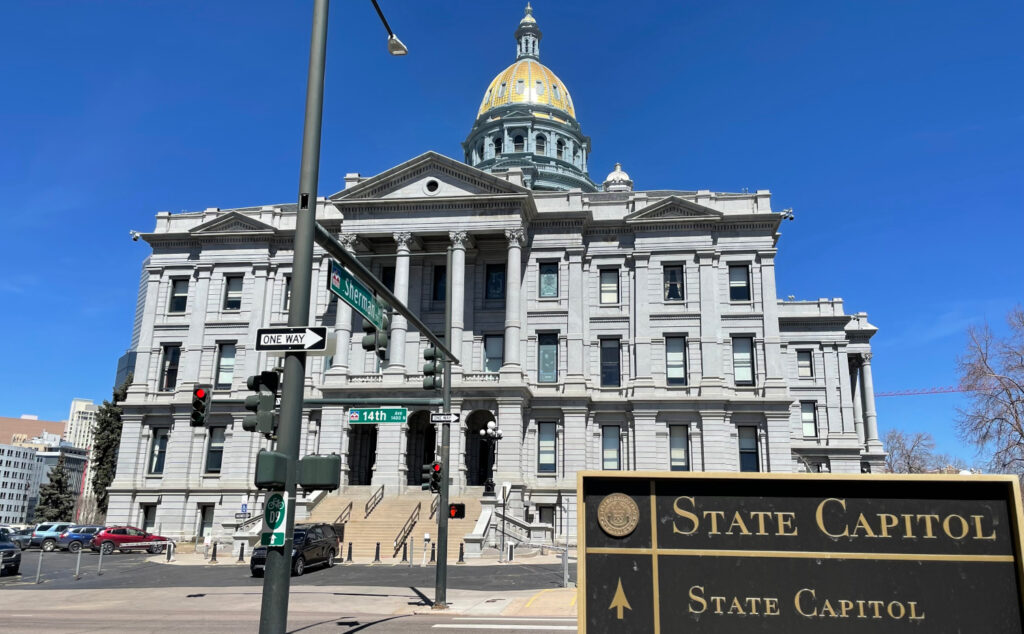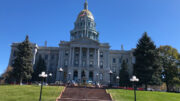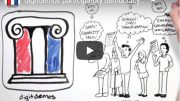By Jeffrey A. Roberts
CFOIC Executive Director
Colorado lawmakers’ use of an anonymous private survey to prioritize bills impacting the state budget “thwarts the entire purpose” of the Colorado Open Meetings Law because it shields the public “from knowledge that it would otherwise be entitled to know,” a judge found Friday.
While describing the quadratic voting process as “a useful tool that enables elected representatives to consider as many proposals as possible,” Denver District Court Judge David Goldberg prohibited senators and representatives from using it “without full transparency as required by” the open meetings law.
Ruling on a lawsuit brought by the conservative Public Trust Institute and Douglas County resident David Fornof, Goldberg determined that the voting structure — as administered for legislators by the RadicalxChange nonprofit — is a “meeting” under the statute, which considers gatherings of two or more members of a state public body to be “open to the public at all times” if the body discusses public business related to its policy-making function.

Because the process is considered a meeting “and because the nature of quadratic voting through RadicalxChange is non-public, the procedure as currently constituted violates COML,” the judge wrote.
“Simply put, ranking a bill and emphasizing the importance of a bill evidences that legislator’s mental impressions, including strategic considerations, trading relationships, and sympathetic ideologies with other legislators,” the ruling says. “These considerations may conflict or be consonant with a position that the legislator has taken with his or her constituents. The public has the right to know.”
Democratic lawmakers started using quadratic voting in 2019 and by 2022, according to KUNC, it had “become part of the fabric of decision-making,” alarming some legislators whose bills had been killed as well as government transparency advocates (including the Colorado Freedom of Information Coalition).
KUNC described the process this way: “Each April, lawmakers click on a personalized link to the anonymous survey. They then use digital tokens to vote for the bills they think should get a piece of the budget each year. They have four days to cast their votes for their top priorities, and party leaders end up with a bar chart showing how popular bills are.”
Goldberg found the quadratic voting system to be in violation of the law’s prohibition against the use of secret ballots for decision-making because lawmakers “adopted a position, and the identity of the voters, including their positions taken, was shielded from the public … The public was thus deprived of the ability to know how their elected representatives voted to prioritize pending legislation, hampering their ability to hold their representatives accountable for how they cast their votes.”
And although there is no case law in Colorado on serial meetings, in which members of a public body circumvent the law by discussing an issue in a series of private one-on-one communications, the judge also found that “this current form of quadratic voting is a ‘serial meeting’ that turned into a constructive quorum, thus being subject to the requirements” of the open meetings law.
Goldberg described the system as “a series of communications that were designed to circumvent the requirements of open meetings laws.”
“Here,” the judge wrote, “Defendants contracted with a vendor that is designed to circumvent the requirements of COML by having individual representatives vote by themselves, then sending the votes to a third party, who subsequently relayed the results back to the General Assembly. While no Colorado appellate courts have addressed COML’s applicability to serial communications, this Court finds persuasive the decisions of appellate courts of other jurisdictions that have found such meetings violate open meetings laws.”
In a court brief, a lawyer for the legislature had argued that participation in the system couldn’t be deemed a “public meeting” because the statute excludes electronic mail communications among elected officials that do not relate to “the merits or substance of pending legislation or other public business.”
“To the extent the quadratic polling exercise could arguably be deemed a ‘meeting’ of some sort, it was wholly unrelated to the ‘merits or substance’ — or ‘essence’ — of any matter being considered,” the brief contended.
But the judge disagreed.
“As the General Assembly, Defendants have the preeminent policy-making ability in this state,” Goldberg wrote. “Prioritizing pending bills would therefore classify as ‘formal action’ because the process of enacting legislation resides squarely within the General Assembly’s ability to make policy. Defendants thus mischaracterize the voting as ‘simply a momentary snapshot of support for pending legislation.’
“Rather, when Defendants collectively vote and support proposed legislation, they are deliberating the merits and substance of matters. There is an exchange of ideas relating to a public policy proposition or other matter being considered by the governing body. Voting to determine the prioritization of pending legislation is undisputedly tied to the process of formation of public policy.”
Goldberg dismissed claims in the lawsuit that lawmakers had violated the Colorado Open Records Act by failing to provide the Public Trust institute with “score sheets” showing how each individual legislator voted. He lacked jurisdiction to decide the CORA issues, the judge wrote, because that statute requires the filing of independent actions in district court to resolve disputes over the accessibility of documents.
But even if his court were to have jurisdiction over the CORA claim, Goldberg added, “Plaintiffs have failed to establish a prima facie case under CORA” because the defendants deny that the requested documents exist.
In his order, Goldberg stressed that his court was not specifying “the manner” in which lawmakers must comply with the open meetings law if they continue to use the quadratic voting system, “it is merely finding that … the quadratic voting process must comply with the COML, if it is to be appropriate under the law, and enjoining the continued use of the non-complying system.”
Lawmakers return to the Capitol next Wednesday to start the 2024 session. Senate President Steve Fenberg said in July that Senate Democrats would probably stop using the quadratic voting system when the legislature reconvened.
Follow the Colorado Freedom of Information Coalition on Twitter @CoFOIC. Like CFOIC’s Facebook page. Do you appreciate the information and resources provided by CFOIC? Please consider making a tax-deductible donation.




